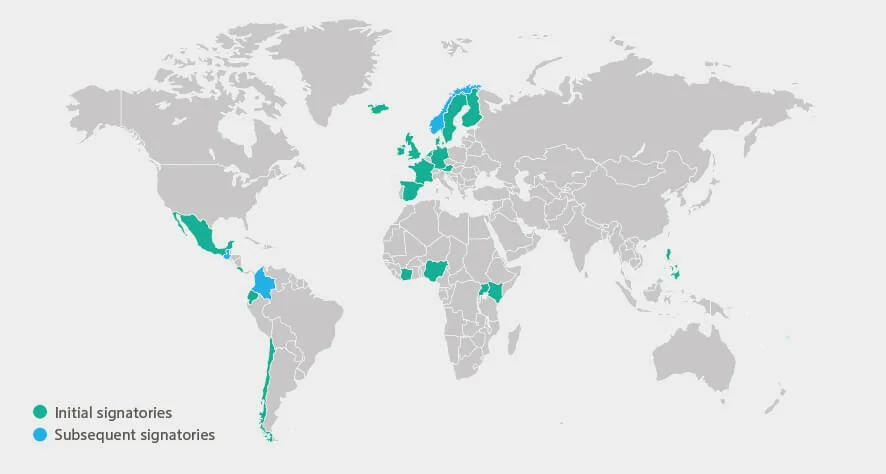
The Spring meeting of the World Bank and International Monetary Fund IMF was held in mid-April in Washington D.C.
© World Bank / Simone D. McCourtie, licensed by CC BY-NC-ND 2.0
Finance ministers from 26 countries, representing all continents, have agreed on a number of principles to promote the reduction of greenhouse gas emissions. The declaration was signed by 22 of the aforementioned 26 at the spring meeting of the World Bank and the International Monetary Fund (IMF) in Washington D.C. in mid-April. Since then, six more finance ministers have also backed the Helsinki Principles. A working group of representatives of various nations had compiled them in the Finish capital city back in February.
The signatories undertake to incorporate not only the Paris climate targets, but also climate change as well as its effects into the calculations of their future national budgets. As such, they want to share their thoughts and encourage each other moving forward. Rather than promoting the use of fossil fuels either directly or indirectly, as has been the case until now, the very opposite is to happen from now on.
According to the IWF, countries across the world spent 5.2 billion US dollars in 2015 alone on subsidising energy sources such as oil, natural gas and coal. “We believe that eliminating fossil fuel subsidies is the right way forward,” said IMF Director Christine Lagarde in Washington. However, as Lagarde points out, the concerns of employees in the affected industries must be taken into account.
Economists consider charging for CO2 emissions to be one of the most important political instruments with which to achieve climate goals. The thought process: Those generating the emissions should pay for every metric ton of emitted carbon dioxide or equivalent thereof. They are thus motivated to lower emissions. This is more effective than simply forbidding certain technologies as it means cost-effective avoidance mechanisms are introduced sooner. As such, climate policy as a whole will become more cost-effective and reduce the economic disadvantages for the national economies.
